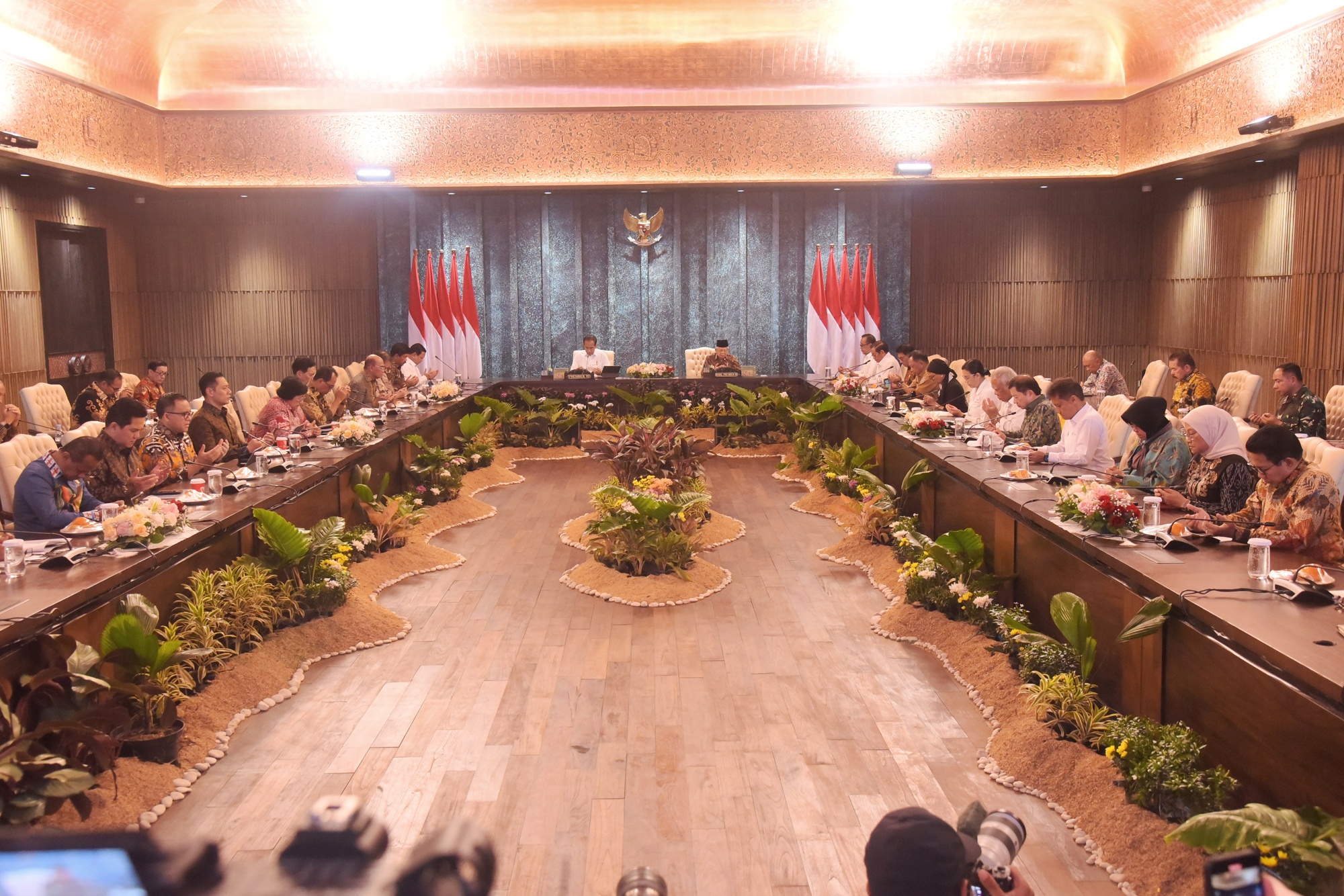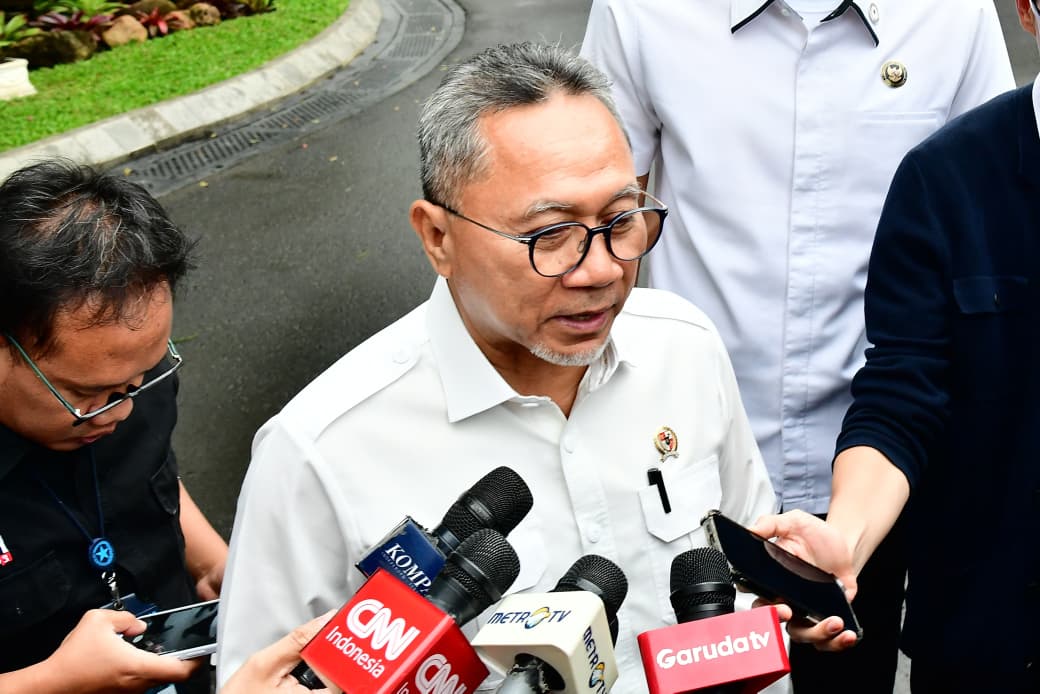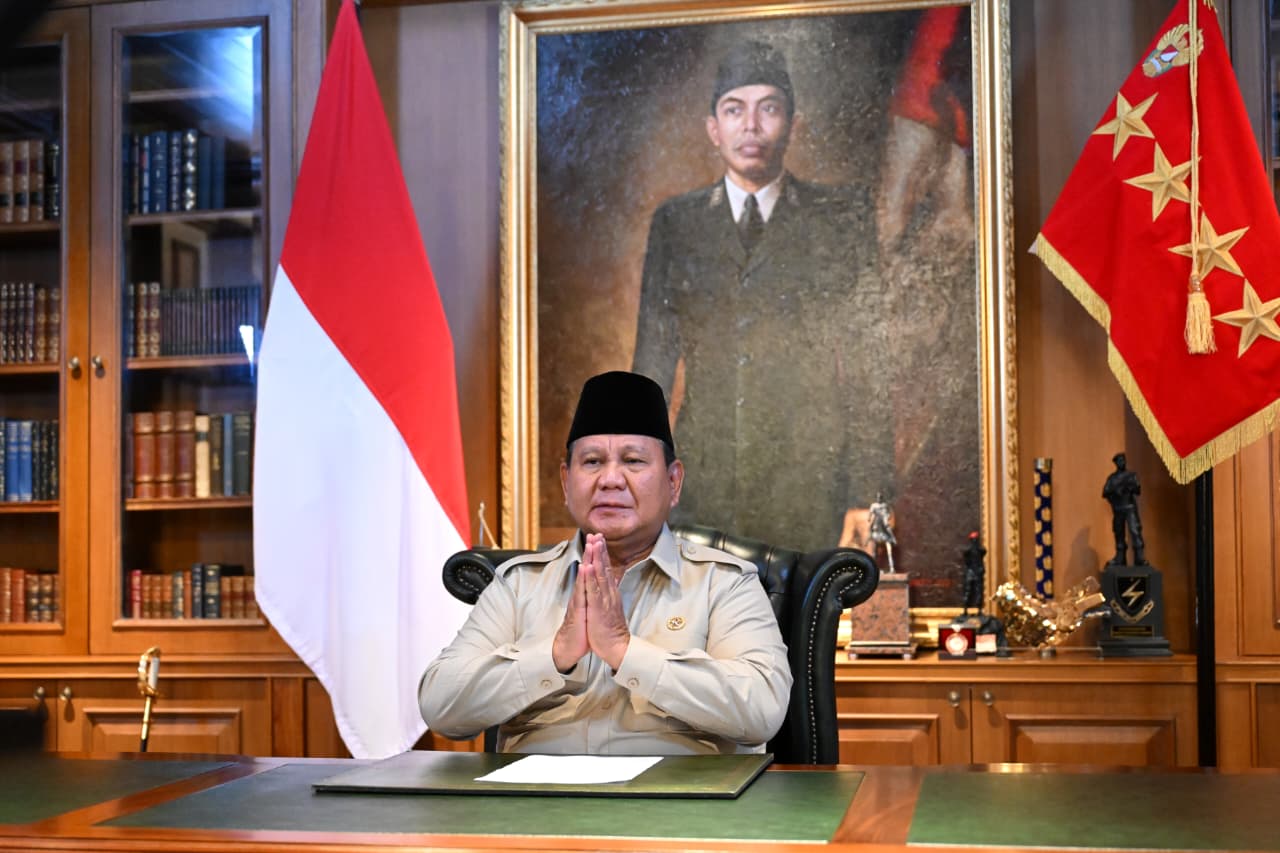President Jokowi Chairs First Cabinet Meeting in IKN

President Jokowi and Vice President Ma’ruf Amin chair a Plenary Cabinet Meeting at the Garuda Palace, Nusantara Capital, East Kalimantan province, Monday (08/12). (Photo by: PR of Cabinet Secretariat/Rahmat)
President Joko “Jokowi” Widodo chaired a Plenary Cabinet Meeting at the Garuda Palace, Nusantara Capital (IKN), Penajam Paser Utara regency, East Kalimantan province, on Monday (08/12). In this first Plenary Cabinet Meeting held in IKN, the President urged his administration to remain vigilant and anticipate the decline in the Purchasing Managers’ Index (PMI).
The President stated that after an expansionary period of 34 consecutive months, Indonesia’s PMI slipped into contraction territory in July 2024.
“This needs to be carefully observed and monitored because several countries in Asia also have PMI readings below 50, namely Japan (49.2), Indonesia (49.3), China (49.8), and Malaysia (49.7),” said President Jokowi.
The President explained that the components experiencing the most significant decline include the production sector (-2.6), new orders (-1.7), and the employment sector (-1.4).
“I want the root cause to be swiftly identified and addressed, as this PMI decline has been occurring for the past four months. We need to carefully examine why domestic demand is weakening,” remarked the President.
The President emphasized the need to immediately identify the primary causes of this decline, including the high burden of raw material imports due to currency fluctuations and the influx of imported products. He also highlighted the importance of purchasing local products, using local raw materials, and protecting domestic industries.
Additionally, the head of state encouraged efforts to explore non-traditional markets and new export potential markets to address these challenges.
“The weakening of export demand or foreign demand is possibly caused by supply chain disruptions or economic slowdowns in our main trading partners. Therefore, we must be able to find non-traditional markets and explore new export potential markets,” he concluded. (FID/DNS) (AY/MMB)








